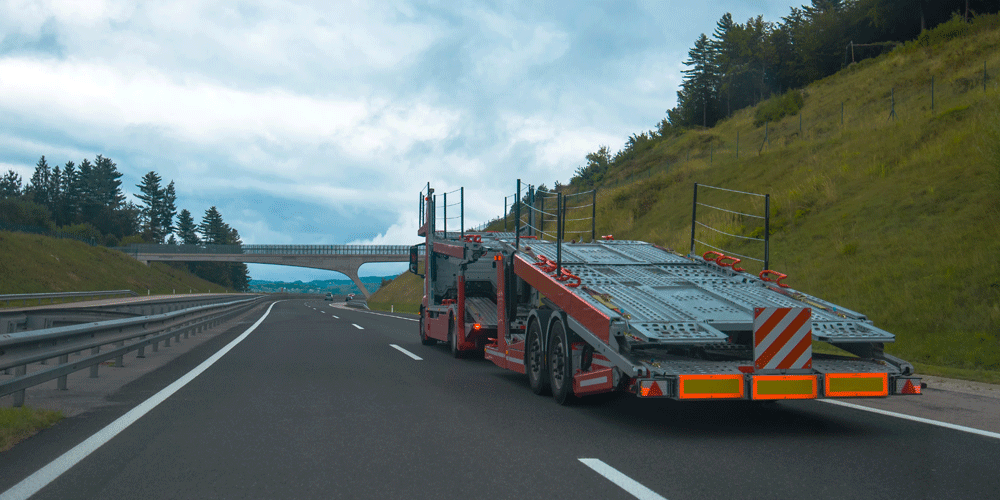A Guide to 5 Types of Background Checks for Truck Drivers
Shelley had limited understanding of the trucking industry when she began at ATS in 2007 – other than to stay out of a truck’s way while on the road. She previously worked in health and human services. Since that time, she has realized there is an abundance to learn in regard to the many departments and an array of expertise. She is happy with her position as an applications processor at an essential business. As part of a driver recruiting department, she is part of a flourishing team that cooperates and contributes toward a common goal. She works closely with the safety, compliance, operations and orientation departments to contribute to optimum hiring results.
Have you ever wondered what information is being collected on you when you fill out all those release forms after applying with a new trucking carrier?
It can seem like there is an endless number of release forms and background checks, and it can be hard to keep track of. There are five background checks (also referred to as consumer reports) that most trucking carriers review before working with you. Releases must be signed to obtain that information per Department of Transportation (DOT) guidelines.
This article will explain each truck driver background check so that it doesn’t seem so overwhelming and you know exactly what carriers are looking at to determine whether or not to work with you.
If you’ve been turned down for a trucking job time and time again because something showed up in your consumer report that didn’t fit within a carrier’s guidelines, this will help you prepare yourself for what’s expected and what’s being reviewed.
Keep reading to learn more about each of the five background checks trucking carriers typically run, including the CDLIS, MVR, PSP, work verification and criminal background check.
The 5 Most Common Background Checks and Consumer Reports for Truck Drivers

1. Commercial Driver’s License Information System (CDLIS)
The Commercial Driver’s License Information System (CDLIS) is usually the first report trucking carriers run. The CDLIS shows where the driver currently holds a license or which states they held a license in the past. The CDLIS shows the license number as well.
All prior issued CDLs will show up on the CDLIS. This is regulated by the DOT and is a federal requirement for all states. There are some cases where the state does fail to report properly to CDLIS, and the carrier will report incidents to the DOT to have the record updated and corrected.
2. Motor Vehicle Records (MVR)
Once the information comes back from the CDLIS report, trucking carriers can run Motor Vehicle Records recorded from the Department of Motor Vehicles (DMV).
A report will be run for each state you hold a license in. If you have held a license in three states in the last five years, three separate MVR reports will be run on you — one for each state. These records are obtained from the motor vehicle department from the states you’re licensed in.
The purpose of reviewing the MVR is to help carriers determine if a driver meets minimum requirements for safe driving or if they’re unfit to drive a commercial motor vehicle (CMV). Records from the past 36 months must be reviewed per DOT regulations.
When reviewing this document, carriers pay close attention to what type of license you hold, what endorsements you have (such as hazmat or tanker endorsements), if you can drive intrastate or interstate and whether or not your medical certification is up-to-date.
Information about the medical certificate is very important. If a driver is not certified, it can slow the process of getting in the door at a trucking carrier. The MVR shows when the medical certificate was issued, when it expires and specific information about the medical examiner. It will also report if there are any medical restrictions, such as wearing corrective lenses.
If you have violations or convictions on your driving record, your carrier will be able to see it on your MVR reports. Anything from an accident to a vehicular crime to an unpaid parking ticket will show up on your MVR. If you’ve been in any accidents, your MVR will list if the DOT declared it nonpreventable or preventable, if you left the scene and if you were at fault.
The violations on your record can weigh against a trucking carrier’s overall safety score, so they will carefully consider each of your MVR reports that come back and determine if you will fit into their specific guidelines or if you might pose a safety risk.
Do you have a spotless driving record? Apply now.
3. Pre-Employment Screening Program (PSP)
The Pre-Employment Screening Program (PSP) is a detailed report that examines your five-year crash history and three-year inspection history from any state you held a license in. This information is provided by the Federal Motor Carrier Safety Administration (FMCSA) and the compliance or safety team at trucking carriers will review this information before you are offered an opportunity.
The report is broken down into a crash activity section and an inspection history section. The crash activity section details the number of crashes you’ve been in, how many were not preventable and how many resulted in fatalities or injuries or towaways.
The crashes listed are FMCSA-reportable crashes and who was responsible for the crash is not specified on the report. If there were any crashes, the date of the crash is listed along with the carrier you were working with and where the crash happened.
Inspection activity details any DOT inspections you’ve had, including roadside stops and weigh station inspections. Anything the DOT finds when doing an inspection is recorded here. If something is out of place — you need to complete maintenance on your truck, your permits or license are expired, you don’t have the proper paperwork — potential carriers will see it on the PSP.
Moving violations where you are issued a warning are recorded on the PSP. If you are caught speeding and are given a ticket it will hit your MVR, but if you get a warning it hits your PSP. You cannot fight a warning, so if you plan to fight the offense, ask the officer to give you a citation so you have your day in court. Regardless of whether it’s a warning or a ticket, carriers consider it a violation.
4. Work Verification
Once a carrier reviews your CDLIS, MVR and PSP, they will look at your work history. They run a work verification report to see a list of companies you’ve worked for in the past, when you worked there, your driver status, the type of equipment you operated, the loads you hauled, your reason for leaving and your drug test history. Your crash history at the company must also be included.
There may be a lot of information about your previous work experience or very little. It depends on your previous employer.
Whether or not the driver was unemployed or worked outside of the trucking industry, work verifications must be collected for the previous 36 months.
Trucking carriers will be reviewing your work history to determine if you’ve hopped from job to job, if you’ve ever abandoned your truck or if you’ve been fired. In some cases, there will be even more information, including if the driver was a satisfactory driver. They also look to see how much driving experience you have.
Sometimes driver recruiting processors will call a driver’s past carriers to get more information. They want to learn as much as they can about you as a driver.
5. Criminal Background
Not all carriers run a criminal background check, but many do. You will have to sign a release that allows the trucking carrier to check your criminal background. Because your background check is run using your social security number, it typically brings back information about any name associated with your social security number. So, for instance, if you have used different names in the past, your information should still come up. Processors may have to do an alias check to get all the information they need.
The reason many companies do elect to run a criminal background check is due to their customer base. Some customers will not allow drivers with certain charges on their property. For instance, burglary charges may not be allowed.
Trucking carriers each have specific guidelines when it comes to criminal offenses. There are some offenses that will permanently disqualify you at certain carriers, such as sexual assault, murder charges, larceny or pending charges. Pending charges usually disqualify you because carriers don’t want to work with a driver that may need to go to court a month after they’ve started or may end up in jail.
Fill Out Those Forms!
If you fail to include the proper information on your application and release forms, it may turn up only a partial report or show that it’s not found. Double-check your forms when you turn them in to save yourself time. You should also give your complete legal name, not a nickname that wouldn’t be in the system. If you previously went by another name while holding a CDL (for instance, a maiden name), be sure to include that on your release forms too.
If you are ever unsure about why you’re signing a release form, just ask. Some states require specific release forms or release language. After the release paperwork is signed, trucking carriers only have a 30-day window to request the informational reports from third-party agencies.
When you understand exactly what’s on your background checks and what top-paying carriers are looking for when they work with new drivers, you increase your chances of working with the best trucking companies.
At ATS, we pride ourselves on our transparency and our driver-centric culture. To learn more about our guidelines, you can visit our hiring/contracting area section of the website or fill out a quick application to speak to a driver consultant.
If you found this article helpful, check out:



